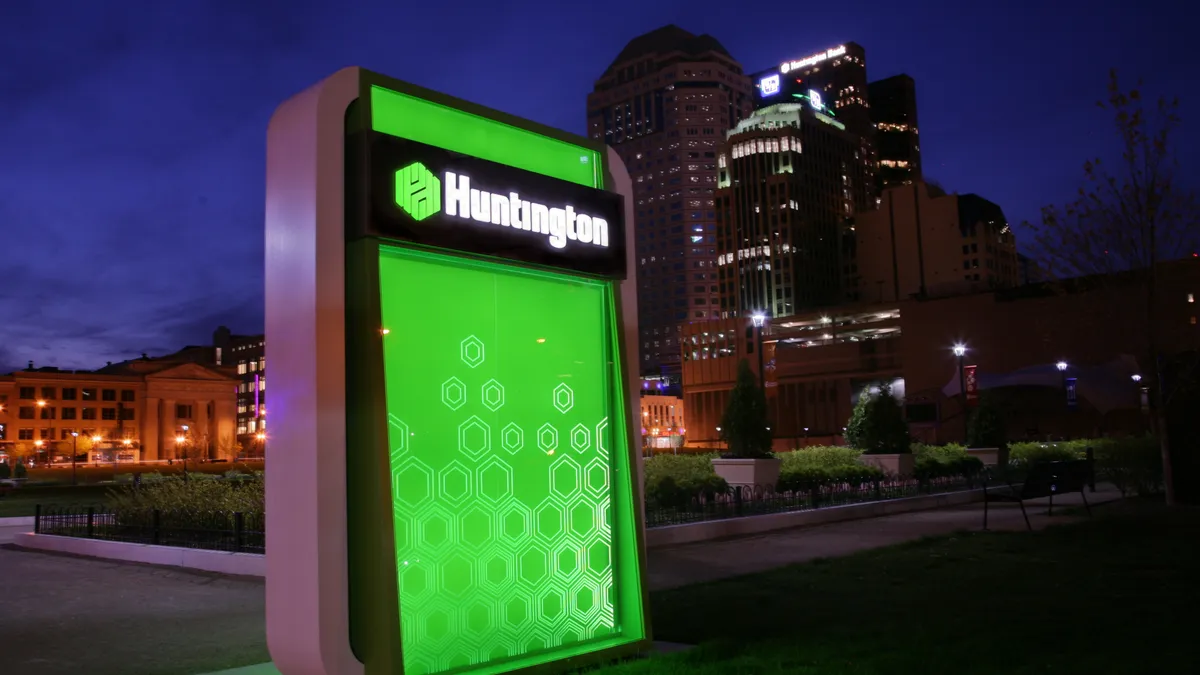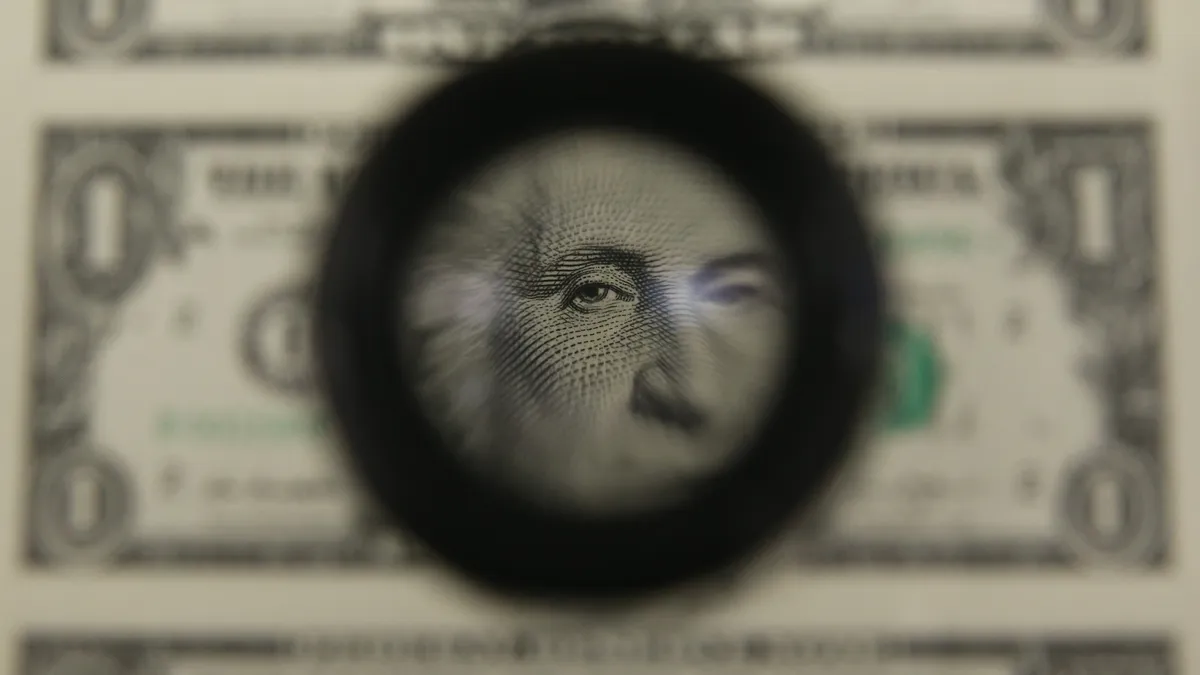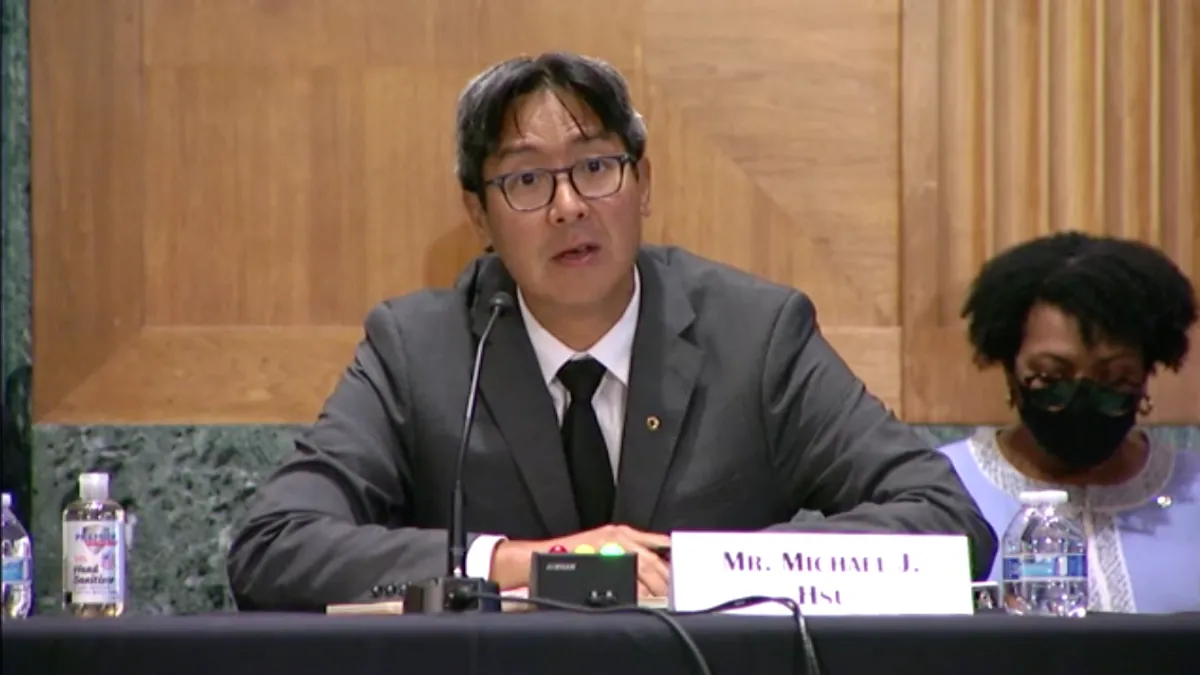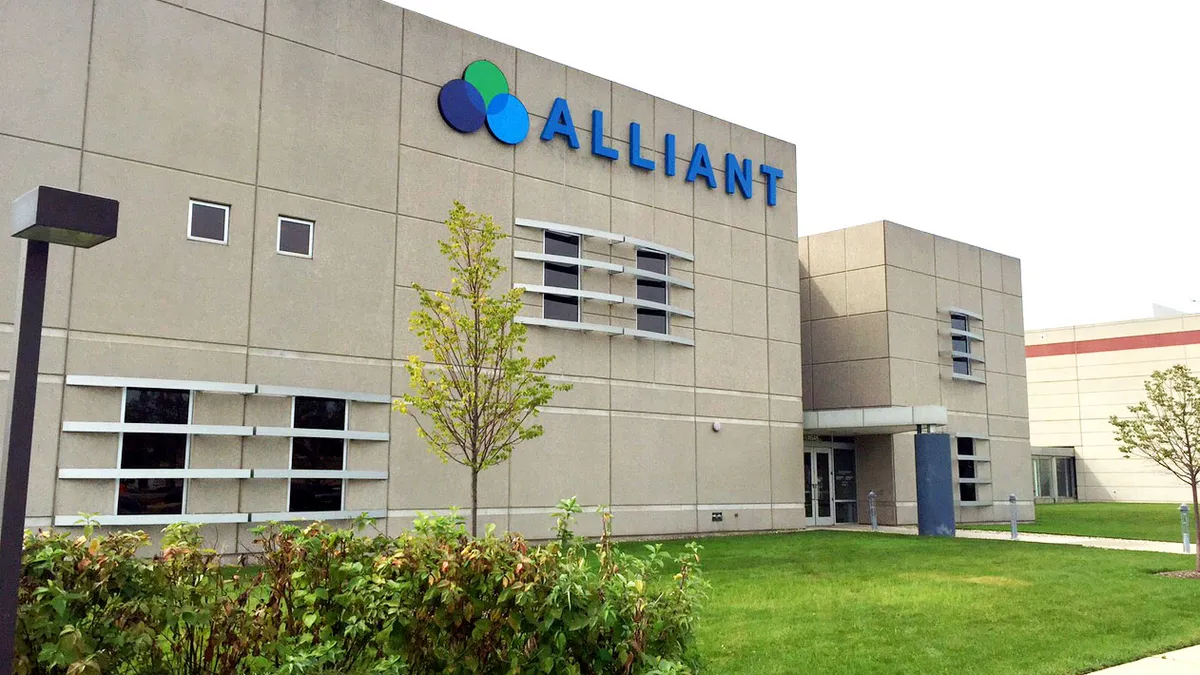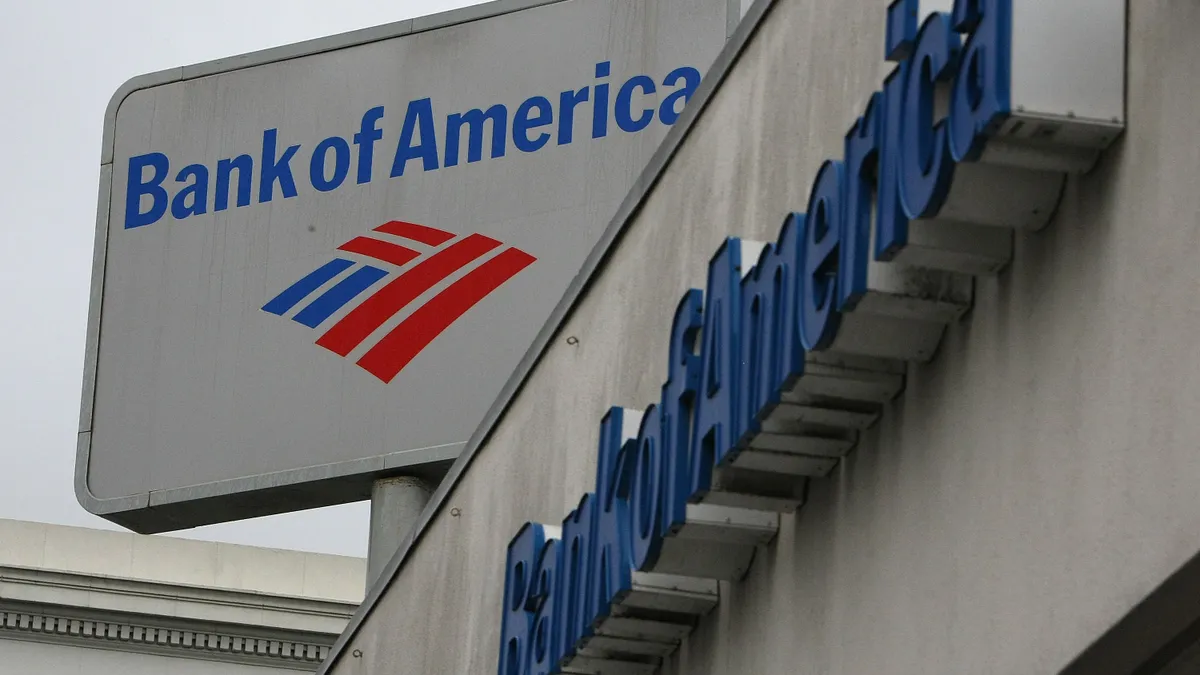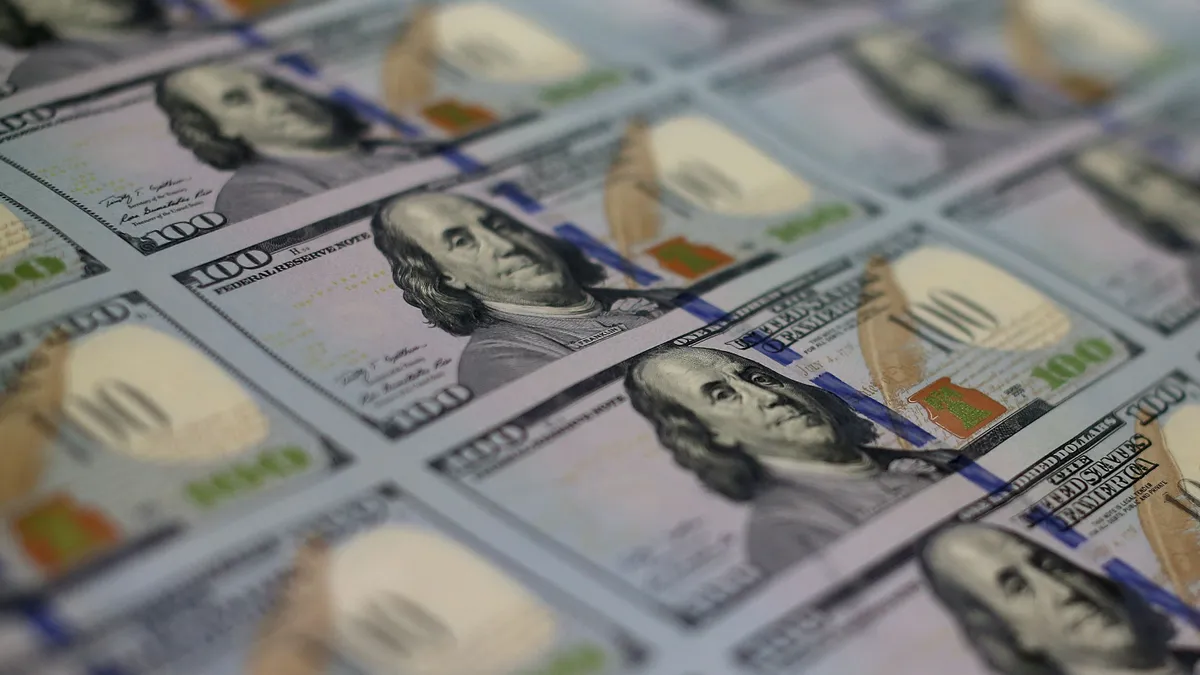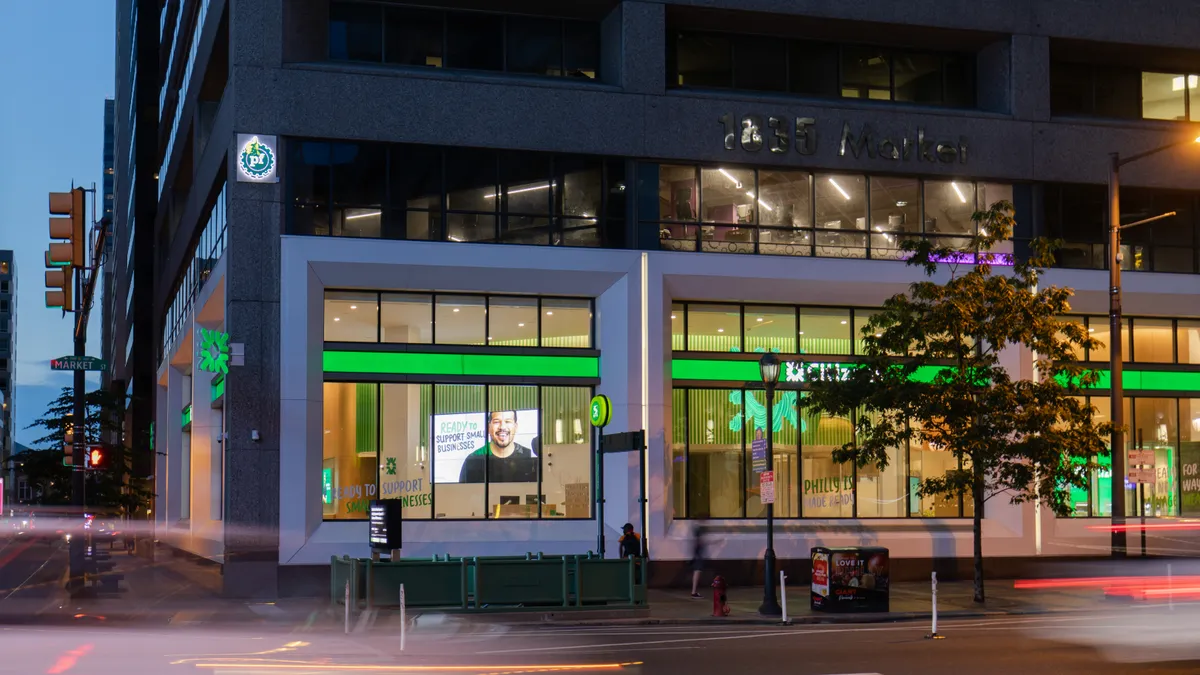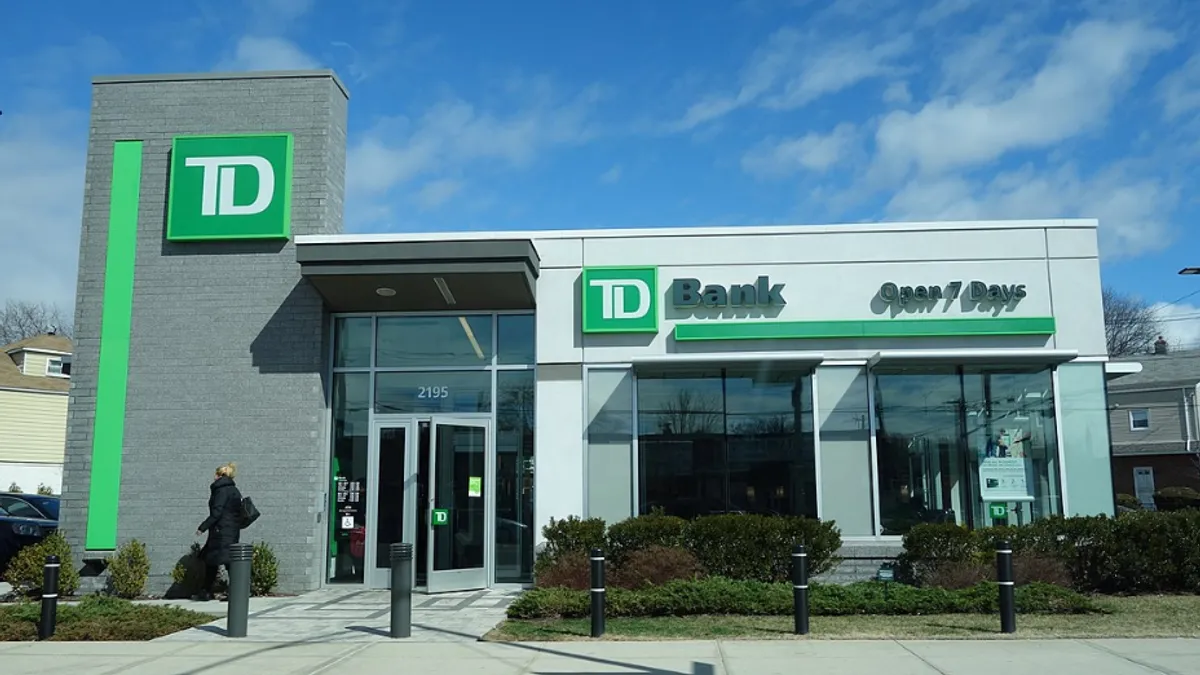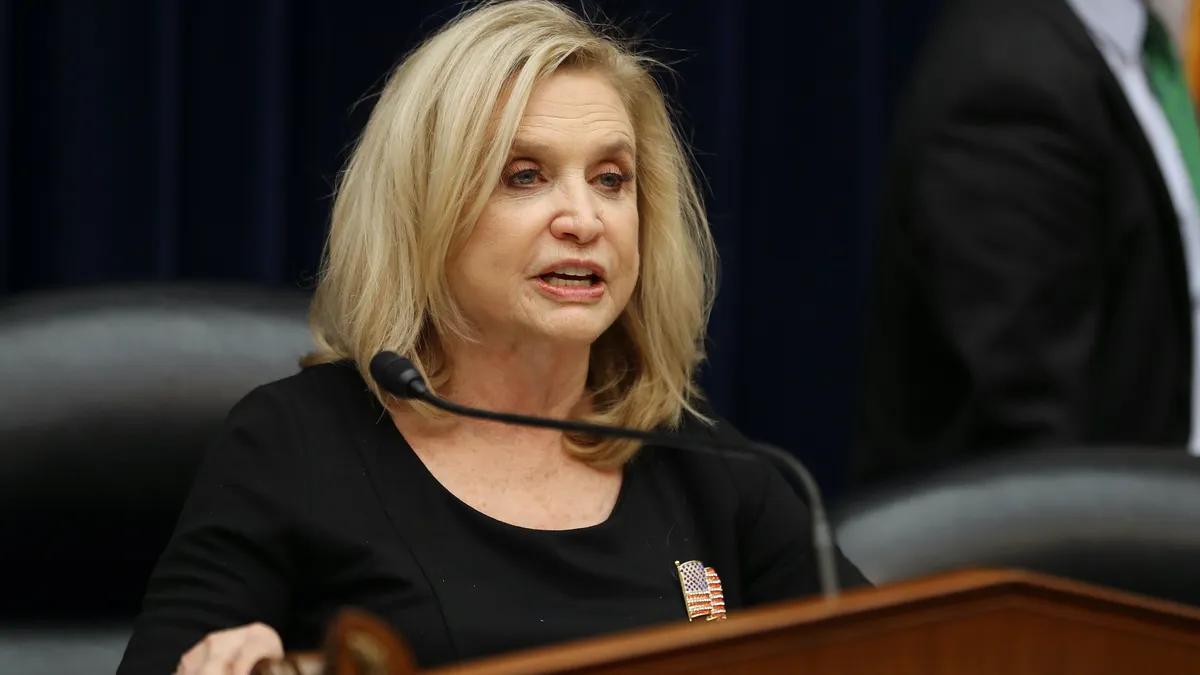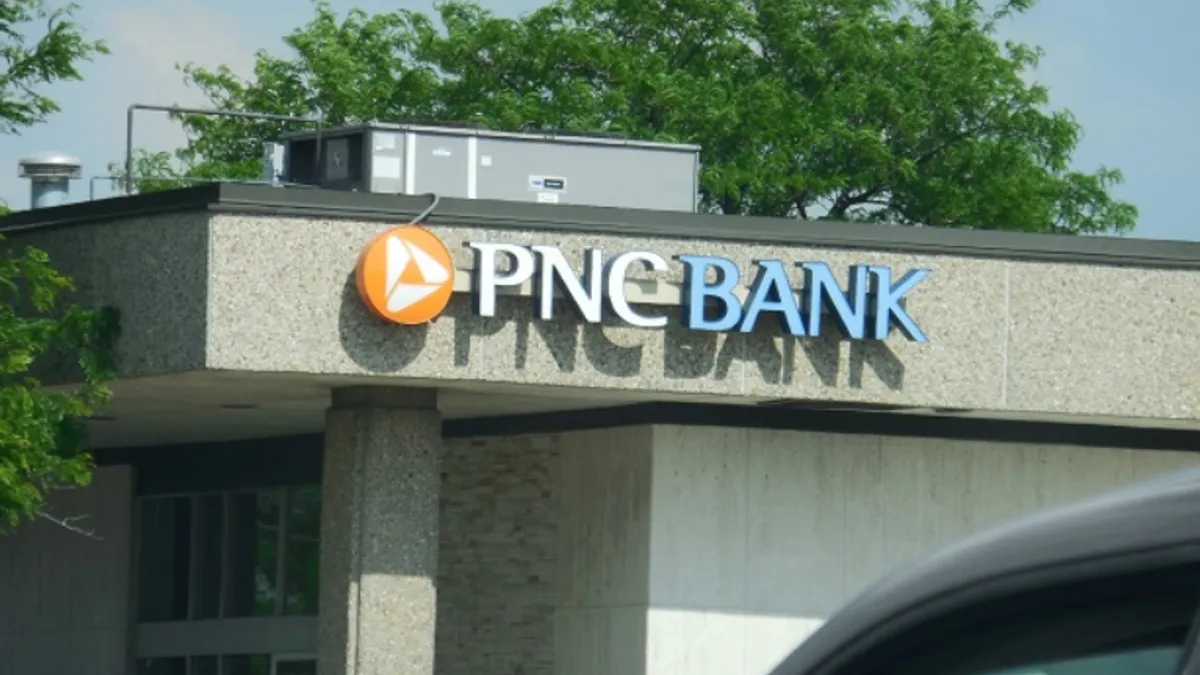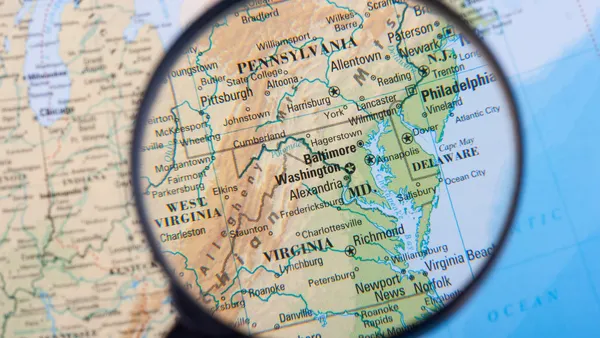Huntington Bank on Tuesday launched Standby Cash, a digital-only loan product the bank said will help customers avoid overdraft fees and build credit.
Through Standby Cash, eligible customers are given immediate access to a line of credit up to $1,000 with no interest or fees if they sign up for automatic payments.
Without automatic payments, customers are charged a 1% monthly interest charge on the outstanding balance. The Columbus, Ohio-based bank said qualification for the offering is based primarily on how customers manage their checking account, and not their credit scores.
The genesis for Standby Cash began amid the pandemic last summer, Huntington CEO Steve Steinour said, adding the bank has been testing the product with community groups in different cities.
"We got a lot of good input, and we continue to refine and adjust, but we're at a point where we're confident in the product launch," Steinour said. "We'll probably continue to make it better over the ensuing number of months, but it tests very well, and most of our customers will never use it, but they like the fact that we're out there looking out for them."
The product fits into what the bank calls its "Fair Play Banking" approach, an initiative it started a decade ago with the launch of its 24-Hour Grace product, aimed at helping customers avoid overdraft fees. The bank extended the overdraft grace product to its business customers last September, and introduced its no-overdraft product called "Safety Zone." With Safety Zone, the bank’s consumer or business customers are safe from overdraft fees as long as the account is overdrawn by $50 or less.
"There are parallels to what we did a decade ago under this Fair Play Banking banner," Steinour said. "What is attractive for customers is the availability of these products."
Steinour said the bank will likely lose up to $1 million per month on the Standby Cash product. But he said the bank hopes the products will attract more customers and build loyalty with its existing clients.
"The motivation here is to differentiate and emphasize, looking out for our customers, and particularly those that will use it," Steinour said. "I think this will be another point of distinction for Huntington with our checking account products and we'll get more customers as a result."
The bank is also piloting a small-business micro-loan product aimed at minorities, women, veterans and those who have been incarcerated.
"We launched it with $25 million as an objective, and we're rapidly closing into that," Steinour said. "We'll take our learnings, adjust it a bit, and we'll come back out."
One step further
Huntington isn't the first bank this year to experiment with overdraft avoidance products. PNC, for example, announced plans in April to launch "low cash mode," a feature that warns users when their balance is low and, if the account is negative, gives them 24 hours to prevent or address overdrafts before fees are charged.
Ally Financial on Wednesday took its anti-overdraft stance a step further, eliminating them entirely.
The bank said customers who overdraw their accounts will no longer face a $25 penalty fee.
"Overdraft fees are a pain point for many consumers but are particularly onerous for some. It is time to end them," Ally CEO Jeffrey Brown said in a statement.
The decision came as an extension of an experiment it undertook last year — it automatically waived overdraft fees between March and July 2020 — and recognition that the people hit hardest by overdraft fees were those who could use that money the most.
"Nationwide, more than 80% of overdraft fees are paid by consumers living paycheck to paycheck or with consistently low balances — precisely the people who need help stabilizing their finances," Brown said.
The Financial Health Network, in a study, found 95% of the consumers who paid $12.4 billion in overdraft fees last year were "financially vulnerable" — and disproportionately Black and Latinx.
For Ally, the revenue lost in giving up overdraft fees is relatively little. The Charlotte, North Carolina-based bank collected $5 million in overdraft charges in 2020, or 0.07% of its total revenue, according to The Wall Street Journal.
For regional banks like Huntington, it's much higher, Morgan Stanley noted Tuesday. The investment bank found that overdraft fees accounted for 2% of Huntington's revenue and up to 5% of revenue at Birmingham, Alabama-based Regions.
Lawmakers' scrutiny
Large banks such as JPMorgan Chase ($1.5 billion) and Wells Fargo ($1.3 billion), however, took in the greatest total amount in overdraft fees last year — a point that made the charges a bone of contention twice last week on Capitol Hill, as the CEOs of the nation’s six largest banks faced questions from both Senate and House lawmakers.
Noting that Citi and Bank of America had eliminated overdraft fees on debit-card purchases, Rep. Carolyn Maloney, D-NY, asked Wells Fargo CEO Charlie Scharf why his bank hadn't done the same. Scharf responded by touting a no-overdraft-fee product the bank launched last year.
A day earlier, Sen. Elizabeth Warren, D-MA, blasted JPMorgan Chase for collecting close to $1.5 billion in overdraft fees over the past year — a total she said was seven times more per account than its competitors. Dimon countered that the bank waived fees upon request for customers who were struggling amid the pandemic, but when Warren asked Dimon to commit to refunding the full $1.5 billion, he refused.
Industrywide, banks collected less in overdraft fees in 2020 — about $31.3 billion — than the $34.6 billion they took in a year earlier, financial data firm Moebs Services Inc. found.


